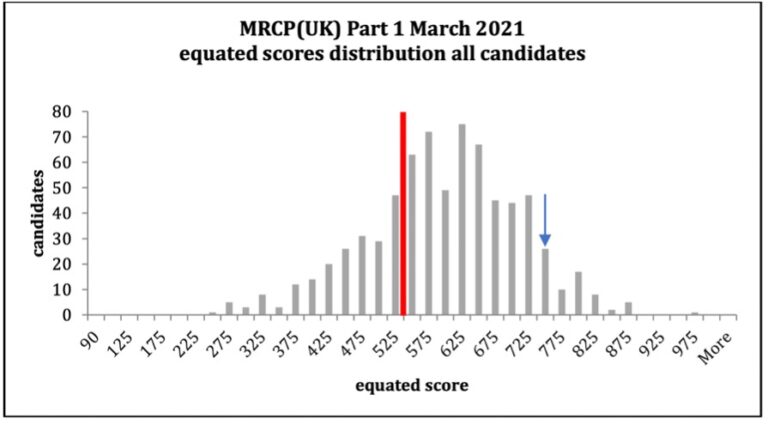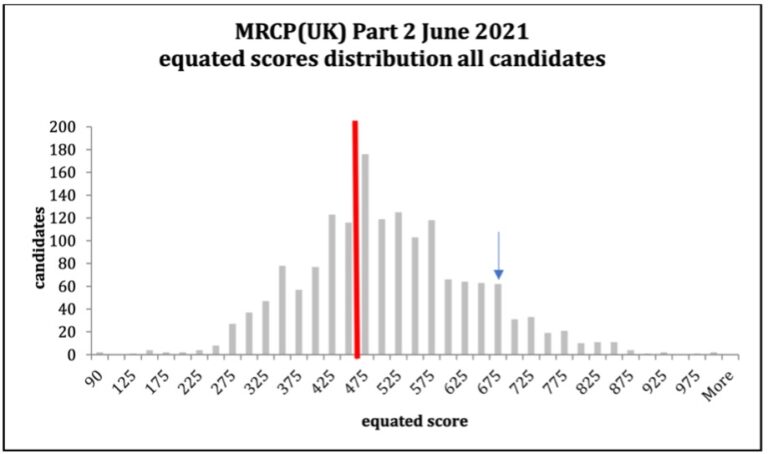How to score top 10% in the MRCP Written Exams
Revision Guide for Part I and Part II
The Part I written is your first step into this notorious world of the membership exams. I feel that the MRCP exams are all the hype in the medical world. It’s the very “hard” thing to do, you need to psychologically prep yourself before it and for some reason you get promoted to an esteemed status once you have received your full membership.
The history of the MRCP exams spans about half a millennium. It was 1541 when the Royal Colleges first set about using examinations to set and maintain standards for the emerging medical profession and even today the MRCP (UK) Diploma continues to be a benchmark that a doctor has obtained a standard that is recognised worldwide as a symbol of excellence in medicine. I realised that the “difficultness” and “pride” in the examinations is something that the Royal Colleges still whole heartedly support based on the RCP President’s speech at my diploma ceremony.
So how do you go about doing it?
I did both my MRCP Written exams as an F2. I didn’t plan to do them so soon, but it was lockdown and there was nothing much going on I thought no harm in at least trying to get those out of the way so I can enjoy when the world finally unlocks and the social buzz returns to it. And I couldn’t be more glad – doing the exams early when you are under no pressure of performing makes your life so much easier as an IMT. Also, the sooner you do it out of medical school, the more “in the study zone” you are, and the same momentum you used for your medical school final exams just carried forward. For me, earlier worked out better but of course it’s a personal choice. However, I do highly recommend that once you’ve decided you wanted to do Medicine and the MRCP just go ahead, take the plunge and do it – we are very good at convincing ourselves that the time is not right or the “I’m not ready just yet” but you never will be until you decide you are.
My Written Scores
Part I Score: 729. Based on this graph from the RCP, about 50 candidates out of a total of 730 scored higher than this which makes 729 it amongst the top 10% of all scores.

Part II Score: 693. About 140 out of a total 1627 candidates scored more than 693 which makes it amongst the top 10% of scores.

The score does not matter of course – a pass is a pass. But I could share the revision methods I used to get me top 10% in both the written papers – they worked for me.
How long to prepare for the exam?
I found about 3-4 months more than sufficient to prepare for the exam.
My experience
I first planned to do my Part I in person in January 2021 – however the delta covid variant gripped the nation, and the exam was cancelled 4 days before I was due to sit it. It was then rescheduled to March 2021. So, my revision was quiet start-stop. For the Jan 2021 exam, I didn’t properly start revision after the IMT applications were completed in early December and at the time I was also working a busy gastroenterology job AND doing an online postgraduate short course, so my revision was limited. I probably only did around 6 weeks of it before the exam was cancelled. I was quite annoyed about that and went on a revision hiatus and only restarted a month later to prepare for the reschedule march 2021 date – so all in all I did just over 3 months of Part I revision.
I booked my Part 2 as soon as I got my Part 1 results in the third week of April for the June 2021 sitting and so only had under 2 months of revision time but there was a lot of overall with the Part I written so I guess the information from Part I was still fresh in my head.
So to conclude – I do feel 3-4 months is generous and plenty for a leisurely written MRCP exam prep but if you are super organised (and a little bit crazy and want to put yourself under revision stress) it can be done in less time than that.
Resources
I love the feel of books so I bought the big blue Pastest Textbook by Karla only to never ready it again. I didn’t use textbooks for either of my exams.
My revision was solely based off the question banks of PasTest and PassMedicine. My seniors at the trust I was working in recommended PasTest and this is the question bank I initially got. With around 7400 questions in the bank, it was a HUGE database. But when my first Part I exam got cancelled due to COVID, I couldn’t face re-revising from the PasTest question bank, so I ended up getting PassMedicine as well. I was SO glad I did that. For my part I exam atleast, I found that PassMedicine was more comparable to the exam questions. But PastTest gave me a good grounding of the knowledge base which helped me make the most of the PassMedicine question bank.
PasTest Pros
- I love that there is an App which you can do on the go and the colour wheel slowly replaces itself from red to green as you work through the bank.
- It breaks down questions to smaller chunks of 25 or 5 questions depending on what you have set it to making the huge question bank more manageable
- It goes through each option for the MCQs in turn to explain the correct option is the correct option and why the incorrect options are incorrect
- It has some videos and podcasts which you can listen to on the go but these are minimal and not always up to date with the clinical guidelines
- Includes Mock Exam papers
Pastest Cons
- The question bank is hugeee which can be a con in itself and can be daunting – when I was revising for the exam, I didn’t think all the questions were up to date with the latest clinical guidelines so some of the questions you had to cross check
- The questions I found had a lot of reading to do and were generally a bit harder than the actual MRCP exam
PassMedicine Pros
- I found the questions more comparable to the actual MRCP exam
- I love the Pastest Texbook – it is succinct, to the point and clinically up to date. It is particularly useful to expand on the knowledge that is difficult to achieve from just goinf through questions such as the stepwise escalation of treatment in things like Asthma, COPD or Heart failure or anti-anginal medications or the different types of renal tubular acidosis.
- PassMed Comments is a gold mine for live entertainment as you work your way through the question bank
- The Knowledge Tutor section hones it on buzzwords and key words like furosemide causes hypercalciuria which you otherwise wouldn’t pay any attention too
PassMedicine Cons
- Doesn’t go through each option in turn to explain why the incorrect options are incorrect
- No mock exam papers (I didn’t particularly find this a hindrance but mock exams may be a more important revision tool for some)
So what are my revision top tips?
I only did the PassMed and PasTest question banks for both exams. I used no other resources such as textbooks, videos, podcasts etc.
I didn’t choose to do both question banks for the first paper, but my exam got postponed and was almost forced to buy the second Passmedicine question bank as I couldn’t face doing PasTest again. I probably would have passed with just one, and loads of my colleagues have done just doing one of those, but my magic formula which scored me in the top 10% for both the written papers became this:
- I would recommend starting with the PasTest to start learning the knowledge base. Read through the explanations for both correct and incorrect questions to understand why a particular answer fits the bill
- Don’t worry about you Pastest score whilst prepping – just focus on learning the content
- If there are some learning topics you want further clarification, the Passmedicine textbook is a good reference
- Once you are done with the Pastest question bank – move on to Passmedicine
- It’s up to you how you work through the Passmedicine – some people do it in small mixed chunks, I preferred to do it by topic – like cardiology, respiratory, Infectious Diseases
- I would recommend going over the questions you got wrong in the Passmedicine question bank I found was quite close to the actual exam
- To finish off, if you still have time left, I would go through the knowledge tutor section of Passmedicine to re-focus on the buzzwords and fine-tune some of the knowledge parts of the exam that you can’t work out no matter how you try!
Good Luck!